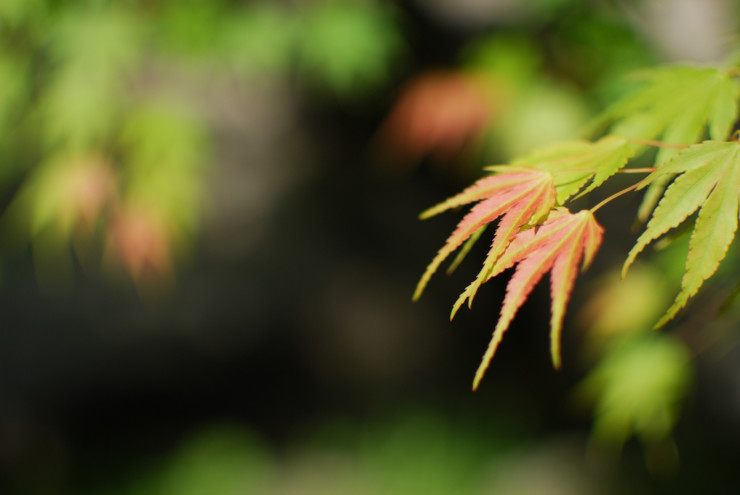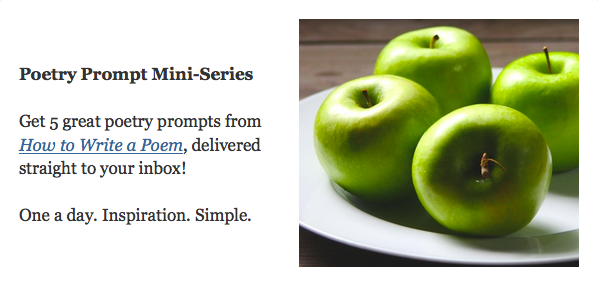 The cinquain, otherwise known as a quintain or quintet, is a poem (or a stanza) composed of five lines. Several European languages offer examples of this form dating back to medieval days.
The cinquain, otherwise known as a quintain or quintet, is a poem (or a stanza) composed of five lines. Several European languages offer examples of this form dating back to medieval days.
Adelaide Crapsey was an American poet of the early 20th century who used a form of 22 syllables lovingly sprinkled among the five lines in a 2/4/6/8/2 pattern. It shares similarity to the Japanese poetic forms, haiku and tanka.
Offering only a few words in each line, the cinquain (pronounced “sin-cane” not “sin-kwane”) is one of the easier forms to learn. With a diamond-like shape when centered, it shares a similarity to the poetic form called the diamanté.
Even though they’re a mere five lines long, the most memorable cinquains tell us a story. Not satisfied with just descriptive words, the poem might also have something happening or some sort of action, maybe even a feeling brought on by the action, and a conclusion.
November Night
Listen. . .
With faint dry sound,
Like steps of passing ghosts,
The leaves, frost-crisp’d, break from the trees
And fall.
Adelaide suffered from tuberculosis of the brain lining and lived the rest of her young life in a sanatorium before succumbing to the disease at the age of thirty-six. Since most of her poems focused on death and dying, one can suppose it was her way to find resolution.
Try It: Cinquain Poetry
We’re going to practice writing a cinquain in the style of Adelaide Crapsey. Here are her rules:
The poem is five lines long.
The first line is 2 syllables, the second has 4, there are 6 in the third, 8 in the fourth, and 2 syllables again in the last line. Keep saying “2,4,6,8,2” in your head and you’ll be fine.
Cinquains don’t need to rhyme, but if you want, go for it.
Now you need to choose a topic. You can write about what you love, what you loathe, something that you see outside your window right now, or something that happens—to you or anyone. Although Adelaide’s poems leaned toward the quietus, yours can be full of springtime and cheer, if you choose.
If you want your cinquain to tell a story:
1st line: Start with your subject.
2nd line: Describe it.
3rd line: Include an action.
4th line: Add the feels.
5th line: Your conclusion.
That’s all there is to it! Enjoy writing your cinquain.
Click to get FREE 5-Prompt Mini-Series
Featured Poem
Thanks to everyone who participated in last week’s poetry prompt. Here is a poem by Rick that gave us a good deal of wing envy:
Where I Went
In the tops of trees, swayed
into the countryside of dreams,
on waves of air, I was lost and found,
high above browned grasses.
The tartan of rooftops
lay harmless below me
as I flew, a nameless bird
over the broken concrete walks
that burned my feet, now far
from the spines of the locust tree,
over the canals lined with old men
fishing for eels, in the cattails.
I circled in a wind from somewhere
and I was all the noises no one silenced,
open like the hope in suffering,
open like a bell in gray light.
There, on a spindle of leaves,
I watched the birds aloft
on the vapor of their wings
and I flew for hours not knowing where.
—by Rick Maxson
Photo by きうこ. Creative Commons via Flickr.
Browse more writing prompts
Browse poetry teaching resources

“How to Write a Poem is a classroom must-have.”
—Callie Feyen, English Teacher, Maryland
- Poetry Prompt: Misunderstood Lion - March 19, 2018
- Animate: Lions & Lambs Poetry Prompt - March 12, 2018
- Poetry Prompt: Behind the Velvet Rope - February 26, 2018

Rick Maxson says
Pinkish,
often the price
for sharing the laundry,
but no one else should see those shorts,
but her
Heather Eure says
Haha! Delightful poem, Rick. So fun.
Rick Maxson says
Heather, thank you for featuring my poem.
You have introduced us to another poetic form with an informative and challenging prompt.
Heather Eure says
You’re welcome, Rick– and thanks. 🙂
Laura Lynn Brown says
No-Knead Bread
Flour, yeast,
salt, water, time.
Baked each Friday morning.
Why’d she stop when baker Dad died?
No need
Rick Maxson says
Awww! No need indeed. Lot’s of heart here.
Megan Willome says
Knead/need. Yes.
Sharon A Gibbs says
Yes. 🙂
Heather Eure says
Your poem tugs at the heart, Laura Lynn.
Rick Maxson says
my heart,
for now not mine,
it is meant for lending,
when life or death are more than one
can bear
Heather Eure says
This is wonderful. My heart’s about to burst. 🙂
Maureen says
Reading
‘Goodnight Moon’ once
You urged fingers to lips
And whispered two words in my ear:
‘Love you.’
Megan Willome says
Maureen!
Heather Eure says
Lovely, Maureen. “Goodnight Moon” will always remind me of bedtime snuggles.
Megan Willome says
We used to do chinquapins in my fifth grade language arts class. I literally don’t think I’ve written one since then.
new car
white out, gray in
You get in, drive away
When will I see you, your car, again
Fusion
Heather Eure says
Megan, this makes me think of a grown kid leaving the nest. *quietly sobs*
Sharon A Gibbs says
Yes, I thought (and felt) the same.
Fusion, perfect.
Maureen says
Hurricane
Irma,
How you threaten.
We mother your red eye,
your wind-swept path deepened oceans
of tears.
(I also have some cinquains on my blog Writing Without Paper.)
Katie says
Maureen,
Like your eclipse cinquains!
You’re a pro at this form:)
Maureen says
Thank you, Katie. (Sorry to be responding so late; I’ve been moving, literally and figuratively.)
Sharon A Gibbs says
Beautiful!
(Off to your blog.)
Maureen says
Thank you, Sharon.
Heather Eure says
“We mother your red eye”
I really like that, Maureen.
Katie says
hammock
sleep inducer
swaying from side to side
lazily swinging, so soothing
naptime
Heather Eure says
Naptime is a great idea. I’m all about it. 🙂
Katie says
cinquain
Adelaide’s gift
her spirit the artist’s
let us remember and honor
her craft
Sharon A Gibbs says
Katie, you’re good at this!
Here’s another about a cinquain…
Cinquain.
Experiment.
2, 4, 6, 8, and 2.
Use action, feeling, conclusion.
Practice.
Katie says
Love this! FUN:)
Heather Eure says
Adelaide would appreciate the homage, I’m certain. 🙂
Sandra Heska King says
Irma
She comes
with stormy eye.
We must buy the water.
Why did we move to florida?
Hurry
Heather Eure says
Yikes! Poetry is good for helping us cope with uncertainty. Stay safe, Sandra. Thinking of you!
Rick Maxson says
the cat
and the blue line
playing on the table,
the colored vase, window and sun
conspire
Heather Eure says
I can picture it perfectly.
Katie says
website
for word lovers
writing new poetry
which laughs/lends/lifts/longs/lilts/lures/lasts
loves life
Sharon A Gibbs says
Lovely.
Heather Eure says
How fun!
Katie says
Tweetspeak
word lovers play
we sing, we dance, we cry
or we whisper, or shout, or moan
Sharing.
Heather Eure says
Thanks Katie! So kind to include us in your cinquain inspiration.
Katie says
Thank you Sharon and Heather – this is a fun form:)
Sharon A Gibbs says
writing
words you can taste,
sifting through memories
to serve and nourish the pages.
Indulge.
Heather Eure says
Your poem is delicious, Sharon. 🙂
Katie says
Yes!
Here’s another:
Walking
the neighborhood
early of a morning
comings and goings, waving “hi”
or “bye”
Christina Hubbard says
Katie, the simplicity and jauntiness makes me smile. Good work.
Katie says
Thank you, Christina:)
Christina Hubbard says
Sharon, I want to eat your words. Lovely!
Christina Hubbard says
Here’s one: http://creativeandfree.com/tree-pose/
Bob McGinness says
Nightly
weather news show;
fear and panic, we go
Walmart shopping, overbuying,
slightly!